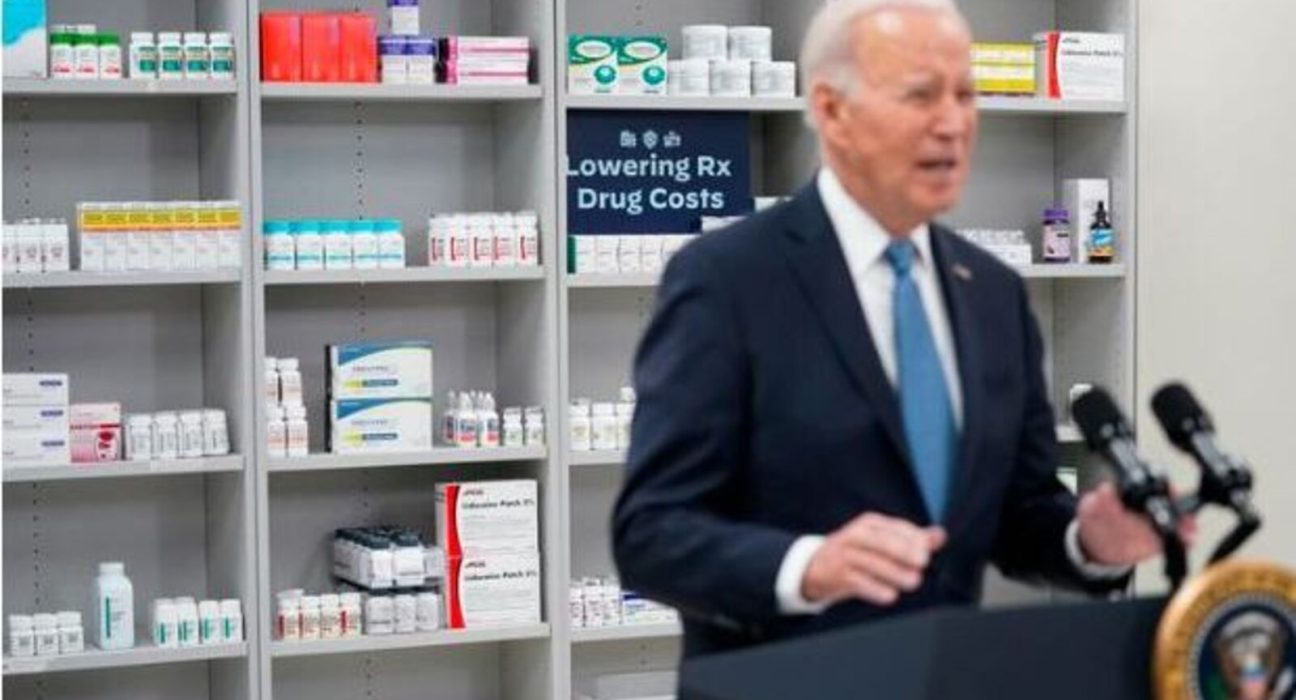Donald Trump and President Biden have both taken a hard line on drug prices, while Florida Gov. Ron DeSantis has touted his state’s effort to import drugs from Canada. During an election year that may see Republicans and Democrats seeking to outdo each other over who is tougher on insurance giants and big pharma, investors might want to tune the noise out.
Donald Trump and President Biden have both taken a hard line on drug prices, while Florida Gov. Ron DeSantis has touted his state’s effort to import drugs from Canada. During an election year that may see Republicans and Democrats seeking to outdo each other over who is tougher on insurance giants and big pharma, investors might want to tune the noise out.
That isn’t to say that politics don’t matter. During years where serious policy overhauls are on the table, election considerations tend to take over. That was the case for the insurance industry in both 1996 and 2008, as Bill Clinton, and later Barack Obama, took stabs at reforming the sector. During both those years, the insurance industry significantly underperformed the broader market.
Hi! You’re reading a premium article
That isn’t to say that politics don’t matter. During years where serious policy overhauls are on the table, election considerations tend to take over. That was the case for the insurance industry in both 1996 and 2008, as Bill Clinton, and later Barack Obama, took stabs at reforming the sector. During both those years, the insurance industry significantly underperformed the broader market.
But with the Biden administration already able to tout a law that will target drug prices paid by Medicare—and Republicans far from united on any serious changes to the healthcare system—valuations, earnings trajectories and macroeconomics might be more important signals in 2024.
When it comes to valuations, healthcare looks attractive after posting one of its worst relative performances last year. The S&P 500 and the NYSE Arca Pharmaceutical Index were trading at roughly similar valuations at the start of last year, but drug companies are now cheaper thanks to the sector underperforming the S&P 500 by 21.4% in 2023.
Political pessimism is arguably priced in: Pharma’s price-to-forward-earnings ratio of 16.7 is about a 15% discount to the S&P 500’s 19.7, and much steeper if you take out Eli Lilly, the highflying obesity-focused company.
So far, it seems investors are being tempted to rotate back into healthcare. The NYSE Arca Pharma Index is up 4% so far this year compared with a less than 1% gain for the S&P 500. While that sometimes is the case with losers catching a bid after tax-loss selling late in the previous year, there is evidence investors are adding to their positions in a serious way.
Asad Haider, a senior healthcare strategist at Goldman Sachs, writes that healthcare saw the largest sector net buying among its prime brokerage clients last week in nearly five months. Haider notes that 2023 was a bad year thanks to highly negative earnings revisions.
This year, forecasts show industry growth turning positive in the second quarter. That could lead to continued inflows. One particularly strong theme has been the outperformance of hospitals and industries tied to procedure volumes and the underperformance of the insurers stuck footing the bill, he notes.
Another year of underperformance is entirely possible, but it isn’t going to be because Trump threatens to, say, gut Obamacare. Instead, the fate of the sector will largely depend on where the economy goes. Jefferies healthcare strategist Will Sevush notes that election years aren’t nearly as good of a predictor for what the sector will do as the economic backdrop.
During elections held during downturns for the stock market, such as in 2000 and 2008, pharma outperformed the S&P 500 by an average of 27 percentage points. That makes sense, given that healthcare is viewed as a defensive sector. For investors looking to move toward more defensive postures, Johnson & Johnson, Amgen, and Walgreens are three high-yielding stocks to make it on a list of the Dow’s 10 highest dividend-yielding stocks—historical outperformers known as “Dogs of the Dow.”
For now, many economists are seeing a soft landing coming into view, with a consensus that this year the Federal Reserve will be able to slash rates without facing a recession. If that happens, investors will have less of a reason to rush to the safety of healthcare, as they did in 2022, when pharma outperformed the broader market by 23 percentage points. If recession jitters do start to build though, or if investors conclude that inflation won’t easily be tamed, then this could be a great year for healthcare, no matter what the politicians say they are going to do.
Write to David Wainer at david.wainer@wsj.com







